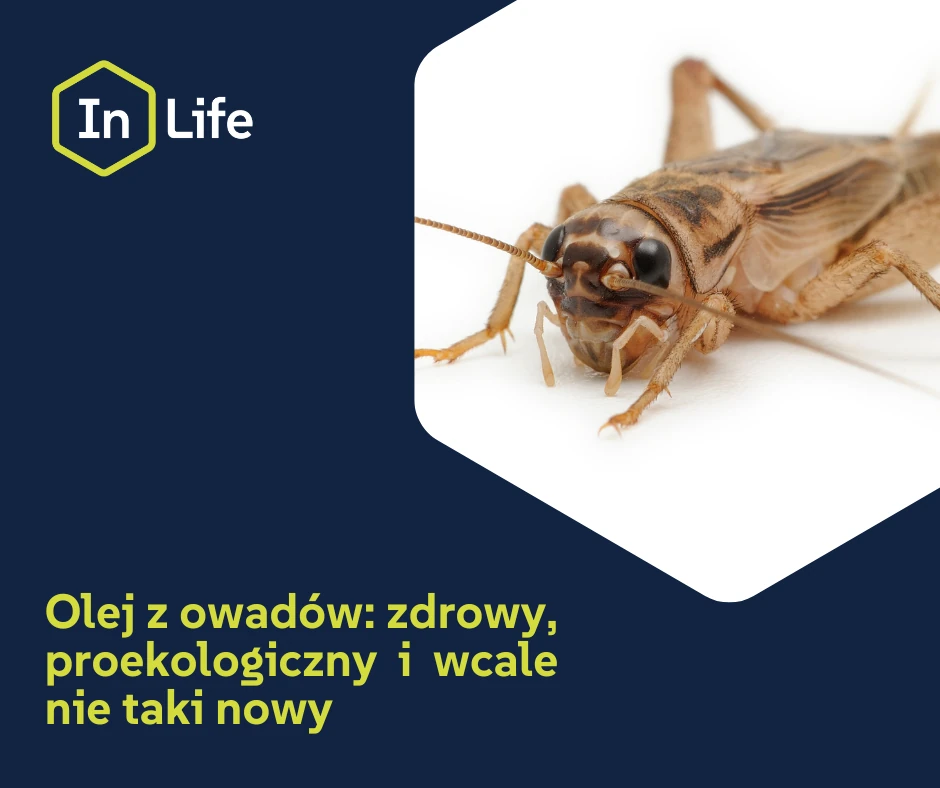
It is a rich source of nutrients, its production contributes to sustainable development and environmental protection, and it is not new at all. Edible insect oil – because that is what we are talking about – is an excellent alternative to traditional oils – emphasizes Dr. Bartosz Fotschki from the Institute of Animal Reproduction and Food Research of the Polish Academy of Sciences in Olsztyn.
– Insect oil is rich in essential fatty acids, minerals, vitamins, and bioactive compounds with antioxidant properties. As a result, this oil can be considered a potentially valuable addition to the human diet, which is not only a sustainable alternative to traditional vegetable and fish oils, but also offers unique health benefits due to its composition, according to a scientist from the Food Biological Functions Team.
This oil attracts attention not only because of its nutritional benefits, but also because it supports sustainable development. Insect farming requires significantly less land, water, and feed compared to traditional livestock farming. In addition to environmental benefits, this type of farming also results in significantly lower greenhouse gas emissions, making it a more sustainable alternative in the pursuit of food security.
Interestingly, insects have been consumed by humans since prehistoric times. – Currently, interest in this product in Western cultures is relatively new and is part of a broader interest in entomophagy (i.e., eating insects), which is gaining popularity as a solution to global food security challenges – says Dr. Bartosz Fotschki.
The global distribution of edible insects is extensive, with Asia, North America, and Africa being the leading regions in terms of species diversity and consumption. Insect oil is obtained from edible insects such as the house cricket (Acheta domesticus), mealworm larvae (Tenebrio molitor), and black soldier fly (Hermetia illucens).
These species are known for their high protein and lipid content, making them ideal for oil extraction. The amount of oil obtained from insects largely depends on the species and the extraction method. For example, it takes about 4 to 5 kg of dried black soldier fly larvae to produce 1 kg of oil.
– Despite their nutritional benefits, consumer acceptance remains a challenge. This is mainly due to cultural perceptions, which is why insect oils are often incorporated into food products in unrecognizable forms, such as blends with vegetable oils or as ingredients in processed foods such as cookies and snacks – the scientist emphasizes.
Currently, EU regulations allow food to be produced from three species of insects: beetles, locusts, and mealworms. In January 2023, the European Union expanded the list of approved products, allowing the marketing of house cricket powder on the EU market. This new ingredient can be added to various food products, such as bread, pizza, other baked goods and ready meals.
Due to its composition and ease of insect breeding, oil from Hermetia illucens (black soldier fly) larvae has attracted considerable attention from scientists around the world in recent years. Such research is also being conducted at our Institute.
These are the first nutritional studies at the Institute to use insect oil. Their main objective is to determine the effect of the oil on the functioning of the digestive tract and liver. The results of the studies will provide new information on the effect of insect oil on the activity of the digestive tract microbiota and the mechanisms regulating lipid metabolism in the liver.